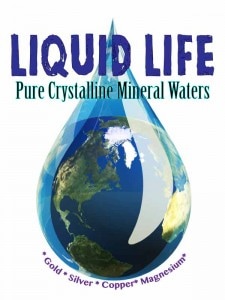The C.R.A.A.P. Test- a tool for evaluating information and finding the TRUTH
When you search for information, you're going to find lots of it . . . but is it good information? You will want to determine that for yourself, and the CRAAP Test can help. The CRAAP Test is a list of questions to help you evaluate the information you find. Different criteria will be more or less important depending on your situation or what you are looking for.
(Thought I would post this to help everyone filter information they are offered to keep themselves from losing their way in the ever present sea of lies and liars -- KS)
To be persuasive, one must be believable;
To be believable, one must be credible;
To be credible, one must be truthful.
All truth passes through three stages. First, it is ridiculed. Second, it is violently opposed. Third, it is accepted as being self-evident.Arthur Schopenhauer (1788 - 1860)
A lie can travel halfway around the world while the truth is putting on its shoes.Mark Twain (1835 - 1910), (attributed)
Truth persuades by teaching, but does not teach by persuading.Quintus Septimius Tertullianus
(160 AD - 230 AD), Adversus Valentinianos
“You believe easily what you hope for earnestly” -- Terence
...
Read More Link on Right
Currency: The timeliness of the information.
When was the information published or posted?
Has the information been revised or updated?
Does your topic require current information, or will older sources work as well?
Are the links functional?
Relevance: The importance of the information for your needs.
Does the information relate to your topic or answer your question?
Who is the intended audience?
Is the information at an appropriate level (i.e. not too elementary or advanced for your needs)?
Have you looked at a variety of sources before determining this is one you will use?
Would you be comfortable citing this source in a research paper? (**)
Authority: The source of the information.
Who is the author/publisher/source/sponsor?
What are the author's credentials or organizational affiliations?
Is the author qualified to write on the topic?
Is there contact information, such as a publisher or email address?
Does the URL reveal anything about the author or source?
examples: .com .edu .gov .org .net
Accuracy: The reliability, truthfulness and correctness of the content.
Where does the information come from?
Is the information supported by evidence? (**)
Has the information been reviewed or refereed?
Can you verify any of the information in another source or from personal knowledge?
Does the language or tone seem unbiased and free of emotion?
Are there spelling, grammar or typographical errors?
Purpose: The reason the information exists.
What is the purpose of the information? Is it to inform, teach, sell, entertain or persuade?
Do the authors/sponsors make their intentions or purpose clear?
Is the information fact, opinion or propaganda?
Does the point of view appear objective and impartial?
Are there political, ideological, cultural, religious, institutional or personal biases?
http://www.csuchico.edu/lins/handouts/eval_websites.pdf
http://www.dinarrecaps.com/2/post/2011/11/wise-words-the-craap-test.html
When you search for information, you're going to find lots of it . . . but is it good information? You will want to determine that for yourself, and the CRAAP Test can help. The CRAAP Test is a list of questions to help you evaluate the information you find. Different criteria will be more or less important depending on your situation or what you are looking for.
(Thought I would post this to help everyone filter information they are offered to keep themselves from losing their way in the ever present sea of lies and liars -- KS)
To be persuasive, one must be believable;
To be believable, one must be credible;
To be credible, one must be truthful.
All truth passes through three stages. First, it is ridiculed. Second, it is violently opposed. Third, it is accepted as being self-evident.Arthur Schopenhauer (1788 - 1860)
A lie can travel halfway around the world while the truth is putting on its shoes.Mark Twain (1835 - 1910), (attributed)
Truth persuades by teaching, but does not teach by persuading.Quintus Septimius Tertullianus
(160 AD - 230 AD), Adversus Valentinianos
“You believe easily what you hope for earnestly” -- Terence
...
Read More Link on Right
Currency: The timeliness of the information.
When was the information published or posted?
Has the information been revised or updated?
Does your topic require current information, or will older sources work as well?
Are the links functional?
Relevance: The importance of the information for your needs.
Does the information relate to your topic or answer your question?
Who is the intended audience?
Is the information at an appropriate level (i.e. not too elementary or advanced for your needs)?
Have you looked at a variety of sources before determining this is one you will use?
Would you be comfortable citing this source in a research paper? (**)
Authority: The source of the information.
Who is the author/publisher/source/sponsor?
What are the author's credentials or organizational affiliations?
Is the author qualified to write on the topic?
Is there contact information, such as a publisher or email address?
Does the URL reveal anything about the author or source?
examples: .com .edu .gov .org .net
Accuracy: The reliability, truthfulness and correctness of the content.
Where does the information come from?
Is the information supported by evidence? (**)
Has the information been reviewed or refereed?
Can you verify any of the information in another source or from personal knowledge?
Does the language or tone seem unbiased and free of emotion?
Are there spelling, grammar or typographical errors?
Purpose: The reason the information exists.
What is the purpose of the information? Is it to inform, teach, sell, entertain or persuade?
Do the authors/sponsors make their intentions or purpose clear?
Is the information fact, opinion or propaganda?
Does the point of view appear objective and impartial?
Are there political, ideological, cultural, religious, institutional or personal biases?
http://www.csuchico.edu/lins/handouts/eval_websites.pdf
http://www.dinarrecaps.com/2/post/2011/11/wise-words-the-craap-test.html












